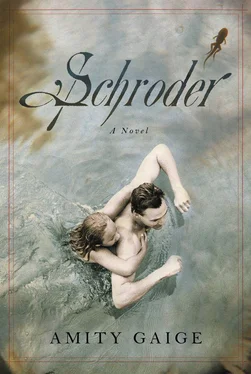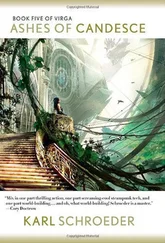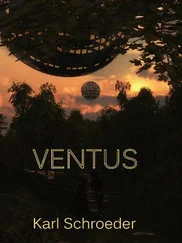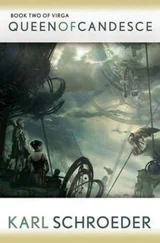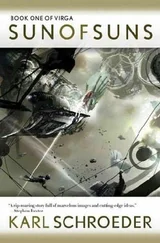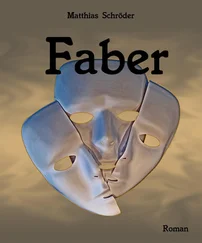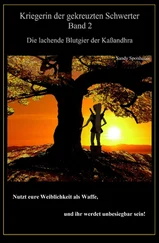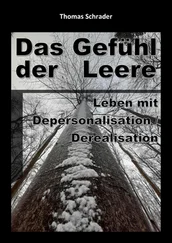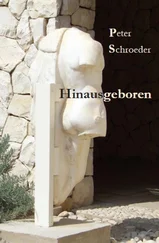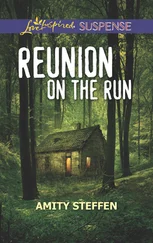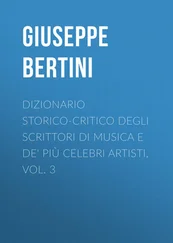In the darkness outside of the camp, I heard a door slam. I squinted through the plastic sheeting to try and see if it was true, if April was leaving us. She started the engine and idled only for a moment before she left us there, just the two of us again, in the shadow of Ragged Mountain. And in this way, my last escape route was cut off. I stared at my dim reflection in the plastic.
“Meadow,” I said. “There are some things I should probably tell you.”

I don’t want to be singled out. I mean, I’m afraid that I’ve made myself too exceptional and that you won’t see me for what I am. Other than my famous last name, there is almost nothing that distinguishes me from all the other sad men and women who have languished in the American family court system. The irremediable decisions, the obedience required by law, in matters of greatest urgency. The issue here is deeper, don’t you think? It is beyond me.
The average American marriage has a life span of seven years. Seven is, of course, an inherently symbolic number. There were Seven Wonders of the Ancient World. Seven hills of Rome. The number seven is all over religion (seven days of Creation, seven skies in Islam, seven chakras, and of course, seven sins that are deadly). Let’s take our marriage as a beau ideal of divorce, ending promptly in its seventh year. Its conclusion had a slow, balletic quality. As I’ve said elsewhere, I hardly felt like I was a player in it. And yet, in the year of our parting, Meadow’s fifth year on earth, we joined one million other couples in legal separation or divorce, thereby conscripting our daughter into the ranks of the ten million children living with separated or divorced parents, undoubtedly the largest subset she’ll ever belong to. They say that one out of every seven of those divorces involves a custody battle. This means that in the same year, about two hundred thousand disgruntled parents took their petitions through courts of family law, paying tens of thousands of dollars to end up more frustrated than they were when they began. They became damaged people, really. Deranged people. Because, of course, there is one thing that really deranges us, and that is the disappearance of love.
Even in the year we separated, the year in which you unstuck yourself of me, I never imagined my relationship with Meadow would be jeopardized. She and I were close. Of course we were; we’d just spent an entire year together. Even when that was over, and I’d gone back to work as planned, and she was enrolled over my objections in the Catholic preschool, I believed that our bond was strong. Hers and mine, that is. Our bond — mine and yours, Laura — was tenuous at best. While I worked, back on the real estate hustle with a couple other survivors from Clebus, you spent quality time with Meadow after school. When I returned, you gathered up your grading and retreated to the bedroom. So? So what? Love ebbs and flows, right? Alienation from others kicks in a sporting self-reliance. I started playing soccer again. I flirted heavily with the girlfriends who came to watch. The boys seemed much younger to me than they had two years before. I kept wallet-sized photos of Meadow for anyone who’d look. I told myself that the frost that had fallen upon my marriage was natural. A natural evolutionary phase.
From my current position, I see things more clearly now. I think of you. I think of me. I think of Mama. I think of Daddy. I think of Mama, and Daddy, and how the brain makes ice. I think of Vogelgesang. Ich denke an die Vögel wie sie in Treptower Park gesungen haben . And I think of childhood’s density.
If my parents had loved one another once, that truth was quickly buried under too many other things to be of use to me. I remember sitting with my chin on my knees, gazing at the two of them engrossed in separate tasks, Daddy staring into a broken Swiss watch with a headlamp, Mama reading a black market fashion magazine, marveling at their silence. How could two beings be so quiet? How could they concentrate for so long without stirring? It never occurred to me that I was also concentrating. I was concentrating on them. I would lose myself in watching them, wondering what fascinated them so much, and when they might utter a word to one another. I could feel my eyelids swipe the surface of my retinas. I could hear houseflies searing themselves inside the lozenge-shaped sconce overhead. I could hear the banging of pots in apartments on either side of ours. Finally, my mother would look up and give me a kick with her shoe. Snap out of it , she’d say.
Did I love her? Oh, very much. Of this no one ever tried to dissuade me. I loved her and I loved my father and I loved my Opa and I loved the teacher of my nursery school and I loved the sheepdog she relied upon to watch us when she went to do something else. I loved sitting at my mother’s feet, pulling along a series of wooden blocks sewn together with a string, a kind of Cubist caterpillar, while her foot bounced idly in its fashionable boot, a pat of grass stuck to the bottom of the high, stacked heel. Who she was, however, remains hotly disputed. A tart. A fanatic. A collaborator. A communist. It’s very hard to reconcile all this with the mother who walked me around Treptower Park, the material of her synthetic bellbottoms sounding a reassuring washboard rhythm beside me. This was the woman who taught me how to ask, before falling upon some pup on the street, “Is your dog friendly?” the same woman who — I can only assume — taught me to hold a pen, to read, to write, to waltz, to tie a shoelace, to look both ways before crossing a street. A woman who does that — who teaches you to tie your laces — has a soul. She has a soul even if, as my father once told me in a rage, she did fall in love with some high-ranking party functionary who seduced her with packages of white chocolate.
But what about this affair with the communist? Was he the villain? How could he be if, in the end, with his intervention, we did not have to hijack a bus or a train or dig a tunnel or swim across the Spree in wet suits in order to get to West Berlin, which was my father’s enduring dream? Instead, we were granted two exit visas and exactly one hour to get to Friedrichstrasse station. My father had been trying to get visas for us for years. Our suitcases — three of them — had long gathered dust in the pantry. Finally, after years of being rejected, his application dragged out, his career stagnant, our family ostracized by neighbors, here was a bureaucratic change of heart. A miracle. And a mystery. 13
Whatever the case, it was a nagging thought of mine that I didn’t have the whole story on my mother. Seeing as I was five the last time I saw her, too young for explanations even if she had wanted to offer them, I had never heard her speak of my going away. But she knew about it. I mean, she was there . She walked me to the nursery school, at the door of which we were intercepted by my father, who traded me for an envelope. I do not know what was in that envelope. Money for the bribe? Her own exit visa, to use when it was safe? For as long as we were in West Berlin, I kept expecting her to follow, but she never did. I think Dad expected her too. We were granted residency in West Berlin but did not qualify for financial benefits, and so we lived in a state of disorientation and near poverty above the garage of my father’s wonderfully unstable sister.
West Berlin was crowded, full of artists, gays, old people, and anyone trying to escape the draft. My father, essentially a conservative man, was shocked. How irritating it must have been to recall the propaganda from the other side, warnings that the Wall existed to keep out saboteurs, enemies of the people. But I remember life in West Berlin at that time as intimate, surreal, and a little dangerous. Dad was either working or scouring for work, a hard thing to find in such a place and time, while my aunt was at home burnishing her idiosyncrasies. 14My aunt had three sons. I played with these baby saboteurs day and night. I recall a vacuum of supervision. Jumping out of the window onto a pile of mattresses. The sight of an old wooden cask rolling toward me in a game with rotating victims. By then, the Wall, which stood there in silence at the dead end of certain streets, had become the largest public art surface in the world. 15
Читать дальше
